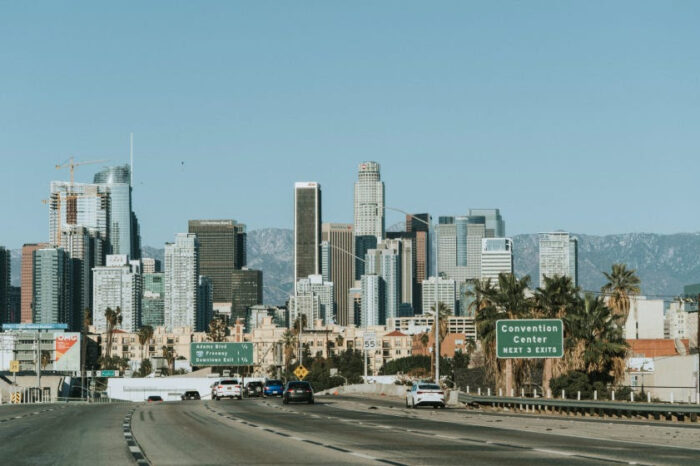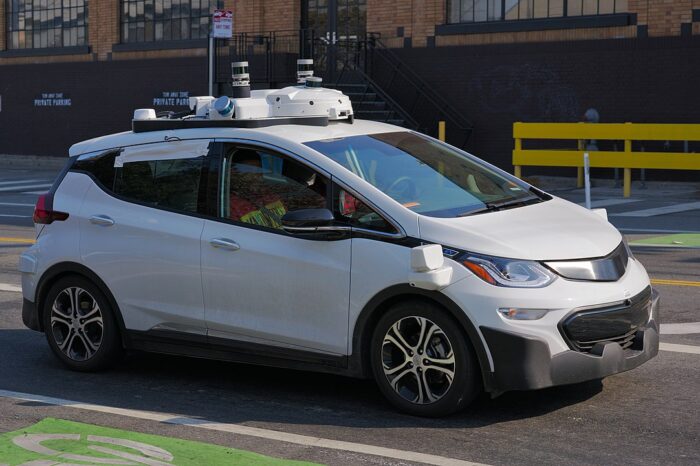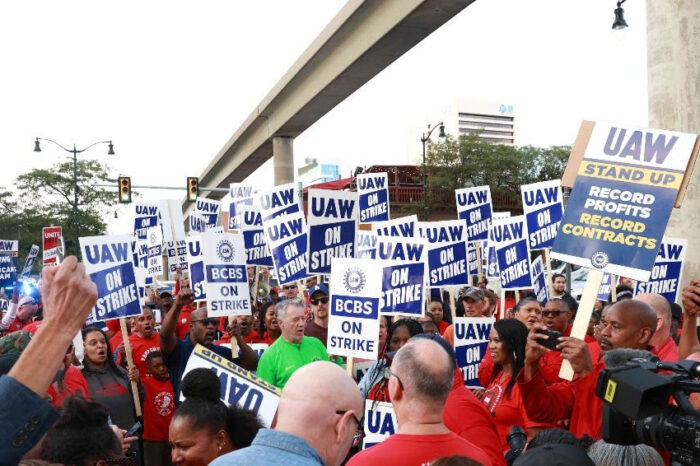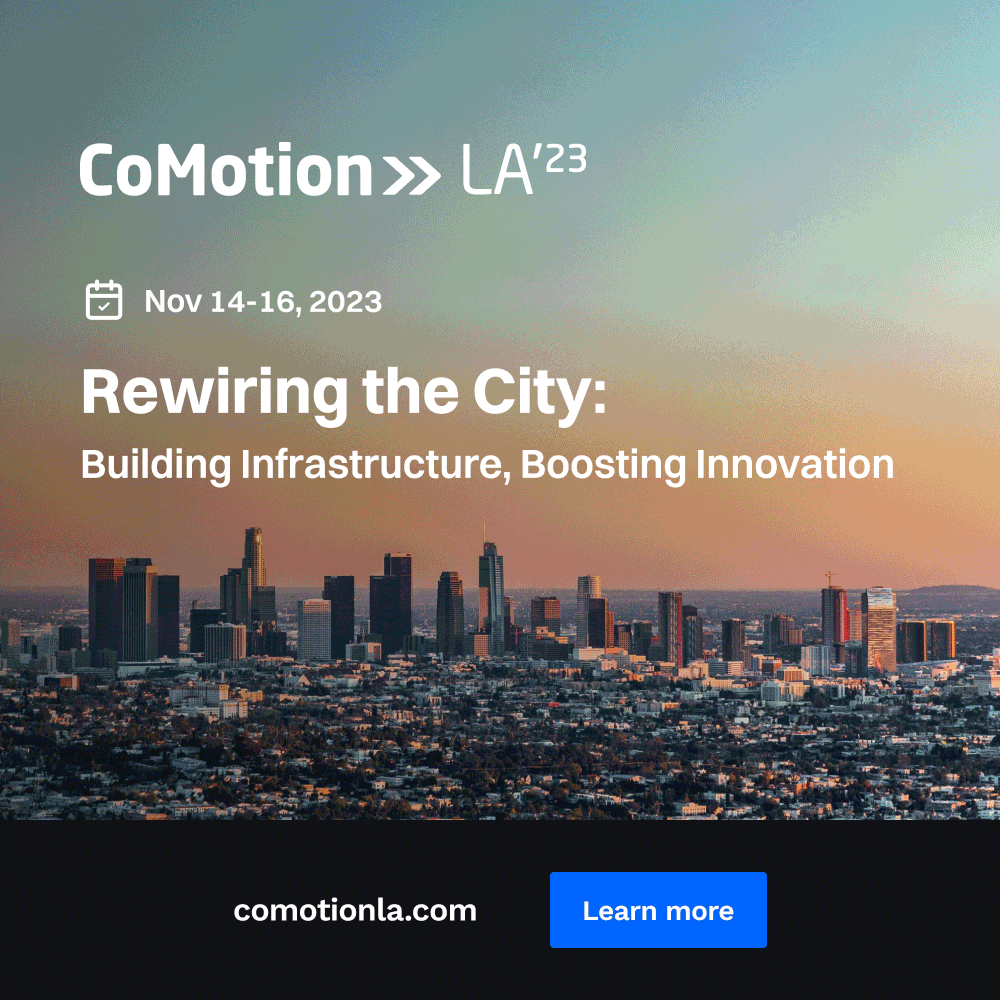The past week reminds us that transitioning from fossil fuels is both extremely important and immensely challenging. July is set to be the warmest month on record, but if you think it’s hot now, just imagine what it will be like 50 years from now. Scientists have.
An alliance of automakers announce plans to build a major North American charging network in hopes of easing the range anxiety that keeps many consumers loyal to gas. Underscoring the point, Ford concedes that its EVs are still big money-losers. Lawmakers in the U.S. and U.K. call for greater regulations of e-bike batteries, which have already killed 13 just in New York City this year.
Plus, a fatal crash involving an autonomous Uber from five years ago is back in the news, Waymo dials back its driverless trucking ambitions, VW and China’s Xpeng team up to make EVs, and Wisk Aero conducts a first public test of its autonomous eVTOL aircraft.
Mark your calendars! Learn more about our upcoming flagship event, CoMotion LA ‘23, Nov 14-16, 2023. Register Today and you can save 50% on your pass.
![]()
Automakers announce major charging collaboration: Seven major automakers will work together to build a network of fast-chargers. GM, Stellantis, Hyundai, Kia, Honda, Mercedes and BMW aim to deliver roughly 30,000 chargers at up to 3,000 charging stations in the U.S. and Canada, nearly doubling the total number of existing plugs. The new network is an obvious rival to Tesla’s, which already boasts 22,000 plugs at 1,500 stations in North America, prompting some OEMs, including Ford and GM, to sign agreements with Tesla to access its network.
A wake-up call for EV transports: A fire that may have been caused by an EV battery ravages a ship carrying 3,700 vehicles off the Dutch coast, killing one and injuring many others. As the EV trade grows in the coming years, the shipping industry needs to better prepare for preventing and extinguishing fires caused by lithium batteries, which are extremely hard to put out.
Waymo tires of trucks: Google’s autonomous startup is dialing back its investments in self-driving trucks to focus on its burgeoning robo-taxi business. The company attributes the decision to business growth and rider demand in San Francisco and Phoenix, where it currently offers driverless rides. Its partnership with Daimler Truck North America to develop an autonomous truck platform will continue at a slower pace, but Waymo has now ended other trucking-related partnerships.
Charging up the continent: The EU adopts new regulations requiring fast charging stations every 60 km (37mi) on the Trans-European Transport Network, a vast network that includes many of the continent’s major highways. The deadline is 2026.
Xpeng & VW team up: VW invests $700 million in Chinese EV OEM, XPeng, to collaborate on two new battery-powered vehicles under the VW brand. The partnership allows the German auto giant to leverage XPeng’s expertise in autonomous, battery, and smart cabin technology, while XPeng can benefit from VW’s global distribution network. The deal could set a precedent for other Western automakers seeking to tap into Chinese firms for their EV expertise, and it may help XPeng scale its AV systems to more users and expand its global reach.
Ford still runs on gas: The Detroit automaker bounces back from an unprofitable year due largely to strong sales of gas-guzzling trucks and SUVs. However, it expects its EV business to post a whopping $4.5 billion loss this year. CEO Jim Farley says the “near-term pace of EV adoption will be a little slower than expected.”
A tragic AV milestone: Five years ago, an autonomous vehicle being tested by Uber in Tempe, Ariz. fatally struck a pedestrian crossing the street, prompting a brief crisis of faith about the regulation of AVs. Last week the woman employed as a backup safety driver in the vehicle pleaded guilty to endangerment and was sentenced to three years of supervised probation. Prosecutors said the driver was streaming a TV show on her phone and was not able to intervene as required. Although there was talk at the time about prosecuting Uber, the ride-hailing giant ultimately avoided any criminal liability. Uber reached an undisclosed settlement with the family of the victim.
Wisking over Wisconsin: Wisk Aero’s two-seat eVTOL vehicle performs a 4.5 minute autonomous flight over a regional airport in Oshkosh, Wis., its first public autonomous test. The Silicon Valley startup hopes to launch commercial operations “this decade,” says CEO Brian Yutko.
Consumer commission calls for new e-bike regs: The chair of the U.S. Product Safety Commission says that “voluntary standards aren’t enough” to curb the fires linked to e-bike batteries that have caused 13 deaths just in New York City this year. Chair Alexander D. Hoehn-Saric calls on Congress to bolster the commission’s regulatory authority so that it can “move rapidly toward establishing mandatory standards” for e-bike batteries. Members of congress who represent New York City, which earlier this year adopted its own law requiring e-bike batteries meet certain standards, are taking the lead in pushing for new federal regulations.
…similarly, in the UK: The London Fire Brigade says they’re responding to fires linked to e-bike batteries every two days on average, prompting calls from safety advocates for minimum battery standards similar to those in effect in New York City.
Nominate a shared mobility champion! Vulog, a shared mobility tech provider, is seeking nominations for its North American Shared Mobility Champions Report. You can nominate a person based in North America at no cost for any of the four following categories: electric, equitable, collaborative, and corporate.
![]()
A glimpse of New York City’s very hot future: Writing for New York Magazine, Christopher Bonanos imagines what summer in the Big Apple will look like in 2073. Unless we take serious action to reverse climate change, 100-degree days become commonplace in America’s largest city. Unfortunately, its roads, train tracks, and housing simply aren’t built to endure persistently hot temperatures, and it’s not going to be easy to rebuild them with hotter temperatures in mind.
A plea for 3-bedroom apartments in walkable neighborhoods: Barry Greene Jr., author of the urbanist newsletter, Density Dad, describes the challenges he and his young family face trying to live a car-lite lifestyle in Richmond, Va. because most of the housing in the city’s most walkable areas are aimed at young singles.
How five world cities do shared mobility: Our friend Andrew Glass Hastings, executive director of the Open Mobility Foundation, writes about the shared mobility landscape he encountered in five cities he recently visited: Paris, London, Amsterdam, Brisbane and La Rochelle, France. Among other things, he says that Paris’ greatly improved bike infrastructure still has a lot of room to improve.
Enjoy the Week in Review? Get it delivered directly to your inbox by signing up for the CoMotion NEWS newsletter.





